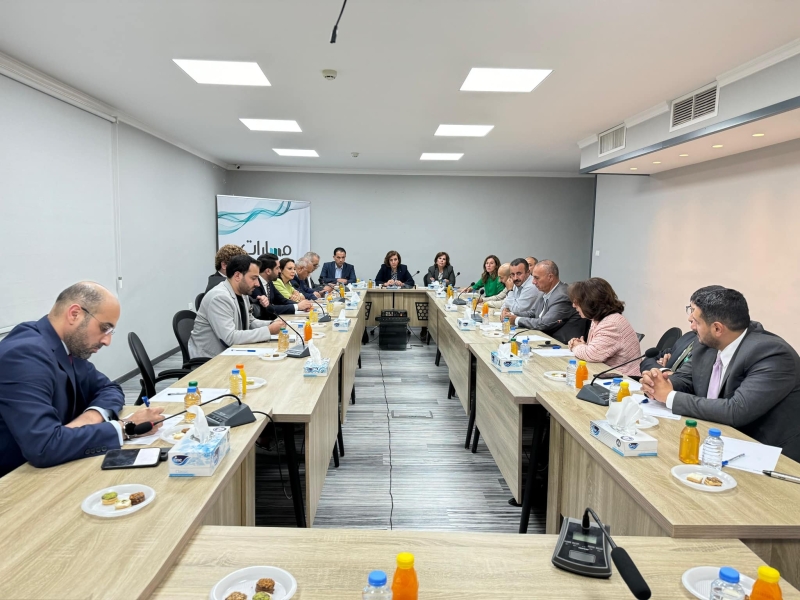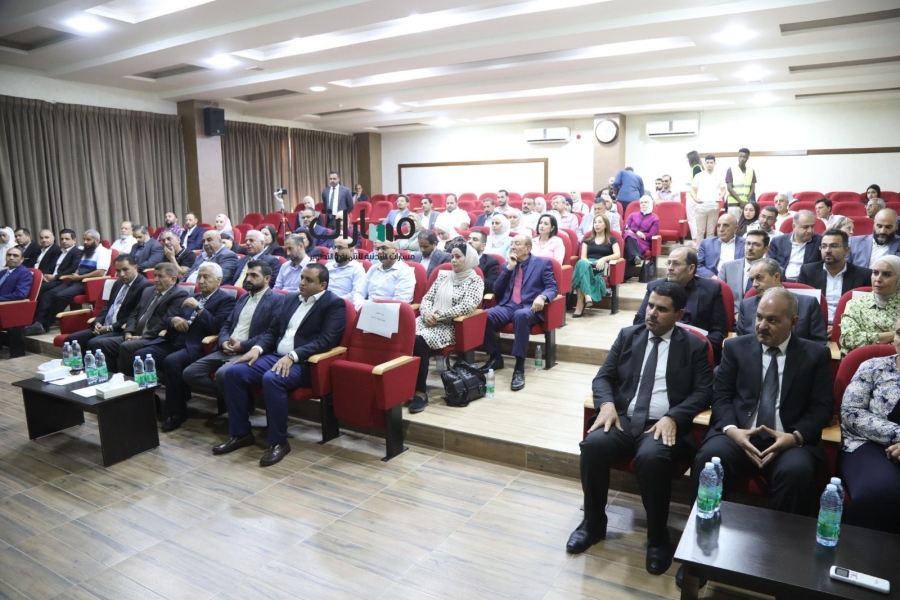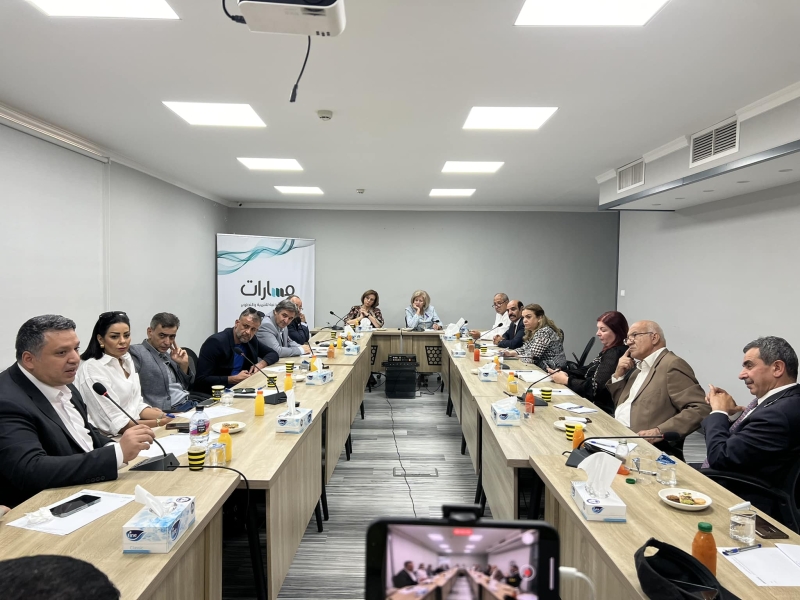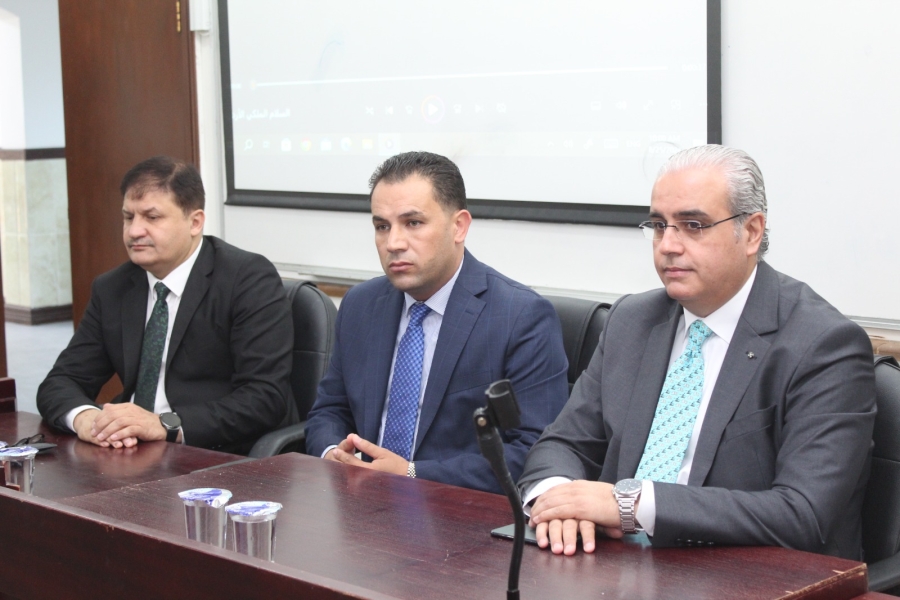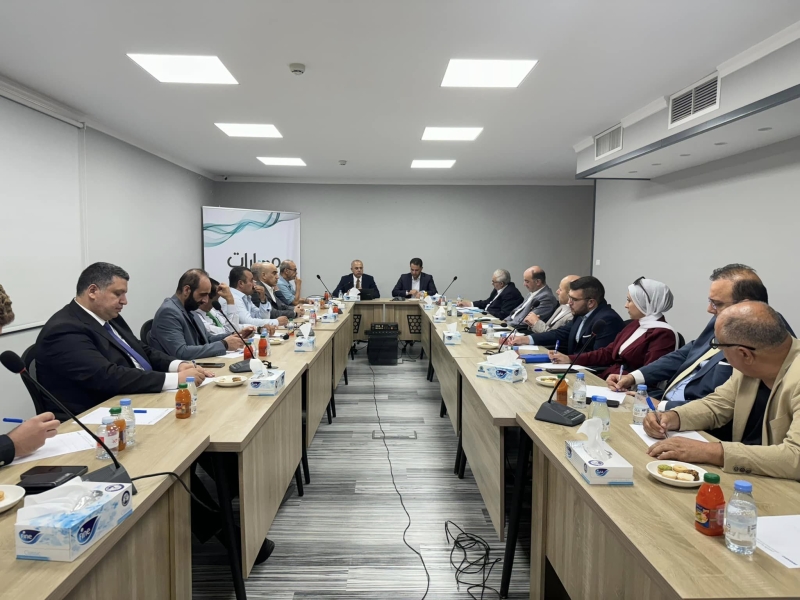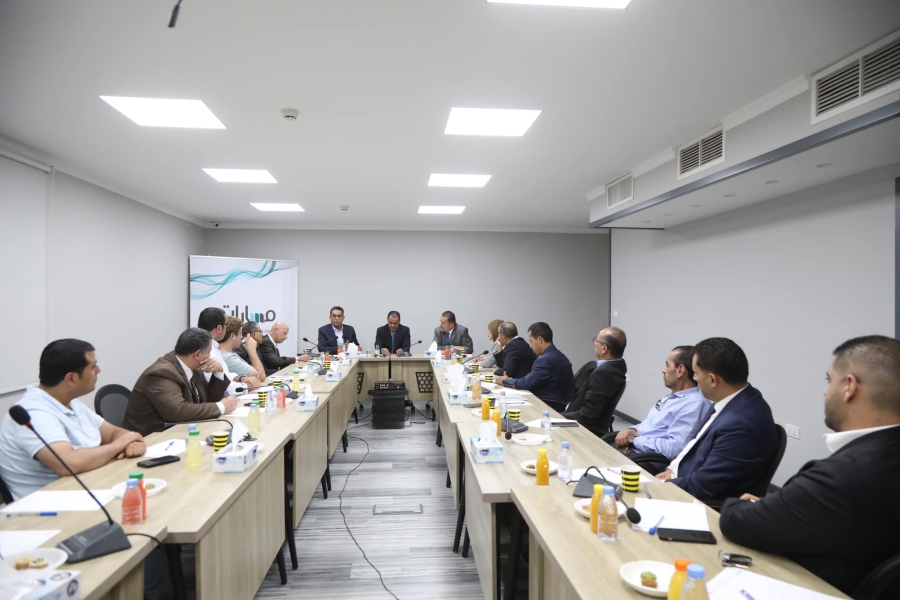Al-Maaytah: The next stage is the stage of parties and achieving political ambition through them
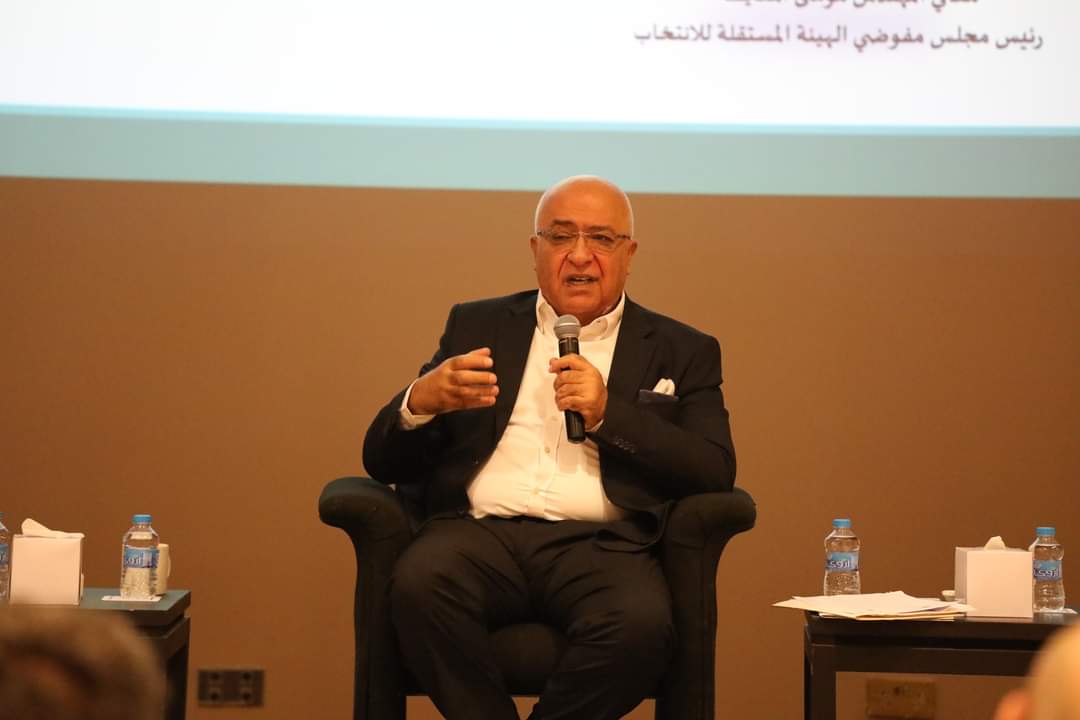
Al-Maaytah: The Upcoming Phase is for Political Parties to Achieve Political Aspirations
The Chairman of the Independent Election Commission (IEC), Musa Al-Maaytah, stated that the successful implementation of party-based work and the upcoming elections will be among the most significant opportunities to strengthen youth participation in political activities. This can be achieved by showcasing successful examples of young individuals winning elections or assuming prominent roles in party work, thereby presenting an ideal model for Jordanian youth.
During a paper he presented titled "The Future of Political Parties: Opportunities and Challenges" at the closing conference of the project "Enabling Environment to Promote Freedoms, Democracy, and Rule of Law," organized by the Jordanian Masarat Foundation for Development and Progress, Al-Maaytah emphasized that the main opportunities for the success of political party work in Jordan lie in the wise leadership's adoption of this direction and the state institutions' acknowledgment of the importance of transitioning towards and supporting party-based work.
Al-Maaytah stressed that the next phase is centered around political parties and achieving political aspirations through active engagement in party-based work. He highlighted that the upcoming parliamentary elections will serve as a marathon for party-based work, culminating in party-majority governments.
He noted that the question frequently raised about whether Jordan has a future in party-based politics has been decisively answered through the current laws—namely, the Political Parties Law and the Election Law, which allocate clear quotas and percentages for party-affiliated candidates.
The Importance of Political Organization
Al-Maaytah pointed out that it is essential for the political elite to reach a consensus that political work cannot progress without party affiliation. He stressed that the foundation of the next parliament should be organized work, which is rooted in political parties. He also highlighted that the updated laws provide significant opportunities, particularly the Political Parties Law, which corrects past paths and enhances public participation by involving youth and women. The law explicitly protects party work, alleviating youth concerns about political engagement.
The Election Law also achieved a longstanding reform demand by introducing a party list system for one-third of the seats in the upcoming parliament, which will gradually increase as per the law. Al-Maaytah emphasized that transferring the responsibility for political parties to the IEC under the recent constitutional amendments provides a clear opportunity to develop party-based work, given the commission's neutrality and distance from political polarization.
Practical Application and Challenges
Al-Maaytah highlighted that the practical application of these reforms is the most critical opportunity. When young people see their peers involved in party-based work, assuming leadership positions, and even becoming members of parliament, this will serve as tangible evidence of the state's seriousness in political modernization and its transition to programmatic party work.
He outlined the primary challenges, including the ongoing fear of party-based work, which has historically deterred youth rather than attracting them, and the persistence of some individuals who spread negativity, particularly among young people.
Financial Funding for Political Parties
Al-Maaytah criticized the previous financial funding system for political parties, describing it as the worst model for supporting them. The former system provided a fixed amount of JD 50,000, which led to the proliferation of parties—resulting in 55 parties with minimal substance. Moving forward, funding will be tied to election results, the number of seats won by the party, and the level of youth and women’s participation.
He emphasized that parliamentary elections cannot occur without the presence of political parties, asserting that Jordan is advancing a political project in which parties are essential. Therefore, elections now require the formation or presence of parties competing for seats allocated to them.
Conference Highlights
During the closing session of the conference, Omar Al-Ayasrah, Deputy Executive Director of the Jordanian Masarat Foundation, expressed pride in the ideas and recommendations shared during the two-day event, which enriched the conference with insights on improving the party environment. He noted that the project began following the recommendations of the Royal Committee to Modernize the Political System by engaging with the community to gauge enthusiasm for the upcoming elections, which allocate a percentage of seats to political parties. The project sought to explore whether these elections would be unprecedented in Jordan’s history and how party-based life would shape the future.
Al-Ayasrah explained that the project involved discussing several laws, including the Publications and Publishing Law, the Crime Prevention Law, the Cybercrime Law, and the Right to Access Information Law. Experts in law, media, and legislation provided key observations and feedback on these topics.
The session concluded with discussions about the importance of youth and women's active participation in political and party-based work, as well as the practical steps needed to advance political life in Jordan through the framework of modernized laws and enhanced cooperation among stakeholders.

